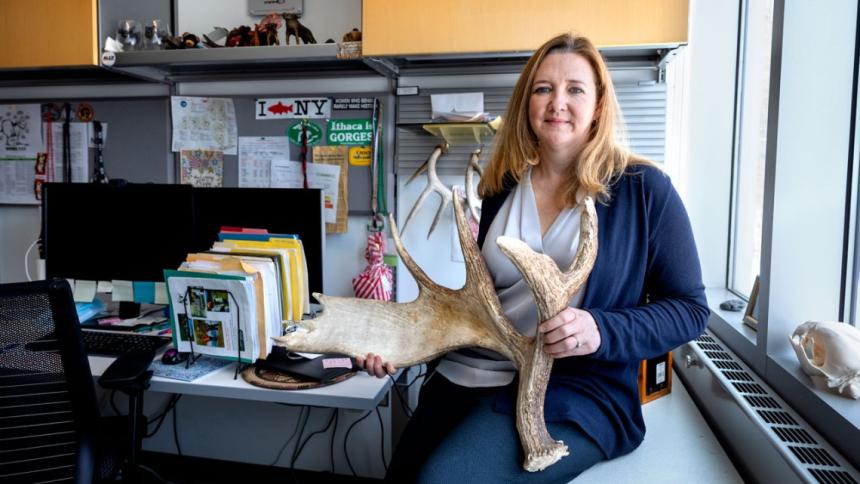Spotlights

For Your Information
November 27, 2023
This study led by Cornell researchers provides an overview of important toxicants to which honey bees are exposed; behavioral, husbandry, and external environmental factors influencing exposure; impacts of toxicant exposure on individual bee and colony health; and the convergent impacts of stress, nutrition, infectious disease, and toxicant exposures on colony health.
Video
November 25, 2023
A presentation by Dr. Steve Osofsky, Director of the Cornell Wildlife Health Center, at the National Academy of Sciences Board on Animal Health Sciences, Conservation, and Research Fall Board Meeting, Washington, D.C.

Video
November 08, 2023
Enjoy these beautiful wild elephants in Chobe National Park, Botswana - part of the KAZA (Kavango Zambezi) Transfrontier Conservation Area - where we're working to restore key wildlife migration corridors.

Podcast
November 06, 2023
This Cornell Veterinary Podcast episode features Cornell's Dr. Krysten Schuler, who spends her days working to protect New York State's wildlife from diseases like bear mange, deadly fungus in salamanders, and chronic wasting disease in white-tailed deer.

For Your Information
November 01, 2023
This new paper by Cornell researchers presents background and commentary focusing on companion and peri-domestic animals as disease risk for humans, taking into account the human-animal interface and population dynamics between the animals themselves.

For Your Information
October 28, 2023
In this study led by Cornell's Dr. Karyn Bischoff, researchers found pesticide contamination of beeswax in New York State's beekeeping industry to be common, with commercial beekeepers experiencing the greatest contamination.

Announcement
October 26, 2023
Cornell's Dr. Raina Plowright will be serving as a co-chair of a new Commission on Prevention of Viral Spillover, convened by The Lancet and the Coalition for Preventing Pandemics at the Source.

Video
October 23, 2023
In this eCornell webinar, Dr. Steve Osofsky, Dr. Krysten Schuler, and Dr. Jennifer Bloodgood of the Cornell Wildlife Health Center at the Cornell College of Veterinary Medicine share their experiences from the field and the lab to illustrate how the health of wildlife and our own health are inextricably linked.

Blog
October 09, 2023
This past summer, Cornell veterinary student Sophie Yasuda traveled to Puerto Viejo de Talamanca, a beautiful beach town along the Caribbean coast of Costa Rica, to work at the Jaguar Rescue Center.

For Your Information
October 06, 2023
This recent study shows that despite a population increase of greater one-horned rhinos in Nepal's Chitwan National Park, genetic diversity has declined.
